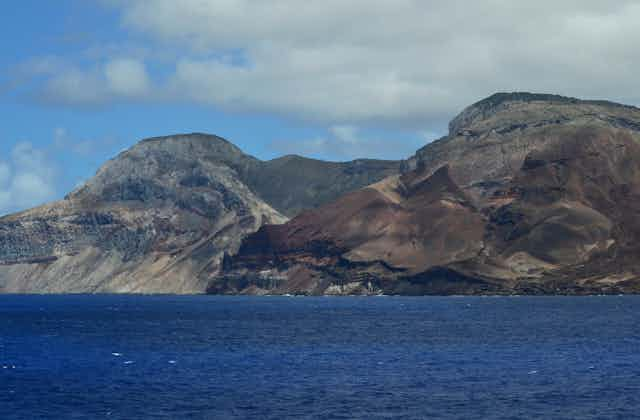As part of attempts to prevent people crossing the English Channel in small boats, the UK government has been briefing the press that it is considering sending arrivals to Ascension Island – a remote piece of land in the Atlantic Ocean inhabited by fewer than 900 people. This idea was originally mooted in 2021 and dropped on the grounds that it was unworkable.
No formal announcement has been made and one can only hope that the government won’t see through on such a plan given how much it would cost. If it did go ahead, it would soon find it to be legally problematic. It would most likely be in direct contradiction to the European convention on human rights, which, among other things, prohibits torture and inhuman and degrading treatment.
Last year, the European Court of Human Rights (ECHR) in Strasbourg blocked the UK government from sending asylum seekers to Rwanda – although it hasn’t yet delivered a final ruling on the matter. British courts also ruled it unsafe to send asylum seekers there, a decision that the government is appealing at the Supreme Court.
Perhaps in anticipation that these legal battles will be lost, other ideas are flying around.
What’s the difference between sending people to Rwanda and Ascension Island?
The main difference between sending people to Rwanda and Ascension Island is that the latter is a British overseas territory.
A key point in legal terms is that anyone on Ascension Island has the right to submit complaints directly to the ECHR about their treatment. In other words, if someone is tortured on Ascension Island they can complain to the ECHR about it. If they are tortured in Rwanda, they can’t.
Can the ECHR block removals to Ascension Island?
It would be unusual but not impossible for the ECHR to prevent a country from moving people from one part to another. However, it is also highly unusual for a government to send asylum seekers to a territory like Ascension Island in the first place, so it is difficult to tell how the European court would react. It may come down to the conditions on the island.
In a 2011 case, the ECHR found Belgium had violated the European convention on human rights when it returned a refugee to Greece because the living conditions they experienced there were inhuman and degrading.
Belgium and Greece are of course different countries but as they are both signatures to the convention, the victim remained inside the territory of the court’s power. The relationship between these two different nations is, in practice, therefore somewhat similar as the relationship between the UK and Ascension Island, at least in relation to the convention.

The ECHR can prevent transfer from within the state if it decides that such transfer would cause immediate harm. For instance, it can ask for someone to be moved from a prison hospital to a civil hospital in the same city if they are at risk.
If the court established that the treatment in Ascension Island might cause such harm, then it can apply interim measures (as it did to stop the Rwanda flight).
This example is particularly pertinent since it appears there isn’t even a hospital on Ascension Island. If anyone sent there needed medical attention, the ECHR might order the UK government to move them to a proper medical facility, which might be costly and complicated.
And if proper living facilities are not set up – if there is no access to water, sanitation and food – the UK government can be found in violation of article 3 of the convention, which prohibits torture, inhuman and degrading treatment.
If the asylum seekers have family in the UK, then sending them to Ascension Island might also violate their right to private and family life. The court dealt with a comparable situation in 2013 when Russia sent two people to remote colonies (thousands of miles from home but notably still on Russian territory) to serve prison sentences.
The court ruled that their inability to communicate with their relatives constituted a violation of their rights. It’s unclear if people sent to Ascension Island would have access to the internet or phones but communication is evidently an inherent challenge in such an isolated place.
Is this plan really going to go ahead?
At times it seems as though the UK government moots ideas of this kind without the intention of seeing through on them in order to stir up outrage among its political opponents or blame a lack of progress on immigration on people trying to block its plans.
And indeed, the need for the Ascension Island policy escapes me. The stated aim of the Rwanda policy was to deter people from using illegal ways of getting to the UK.
According to this line of thinking, for Ascension Island to act as a deterrent, the conditions there would have to be bad. And in that case, the ECHR would not allow the UK to send people there.

A more realistic but unannounced aim of the Rwanda policy could perhaps be to remove these people from the protection of human rights law both within the UK and from the European Convention on Human Rights, thereby relieving the UK of its responsibilities towards them.
Clearly, removal to Ascension Island can hardly achieve this latter aim because the protection of the convention spreads to this island. The cost of relocation and then possibly bringing people back if their claims are substantiated would also be significant.
This policy, if it really is in the works, is likely to violate multiple rights under the European convention on human rights and unlikely to achieve any meaningful purpose. It would be a waste of taxpayers’ money.

